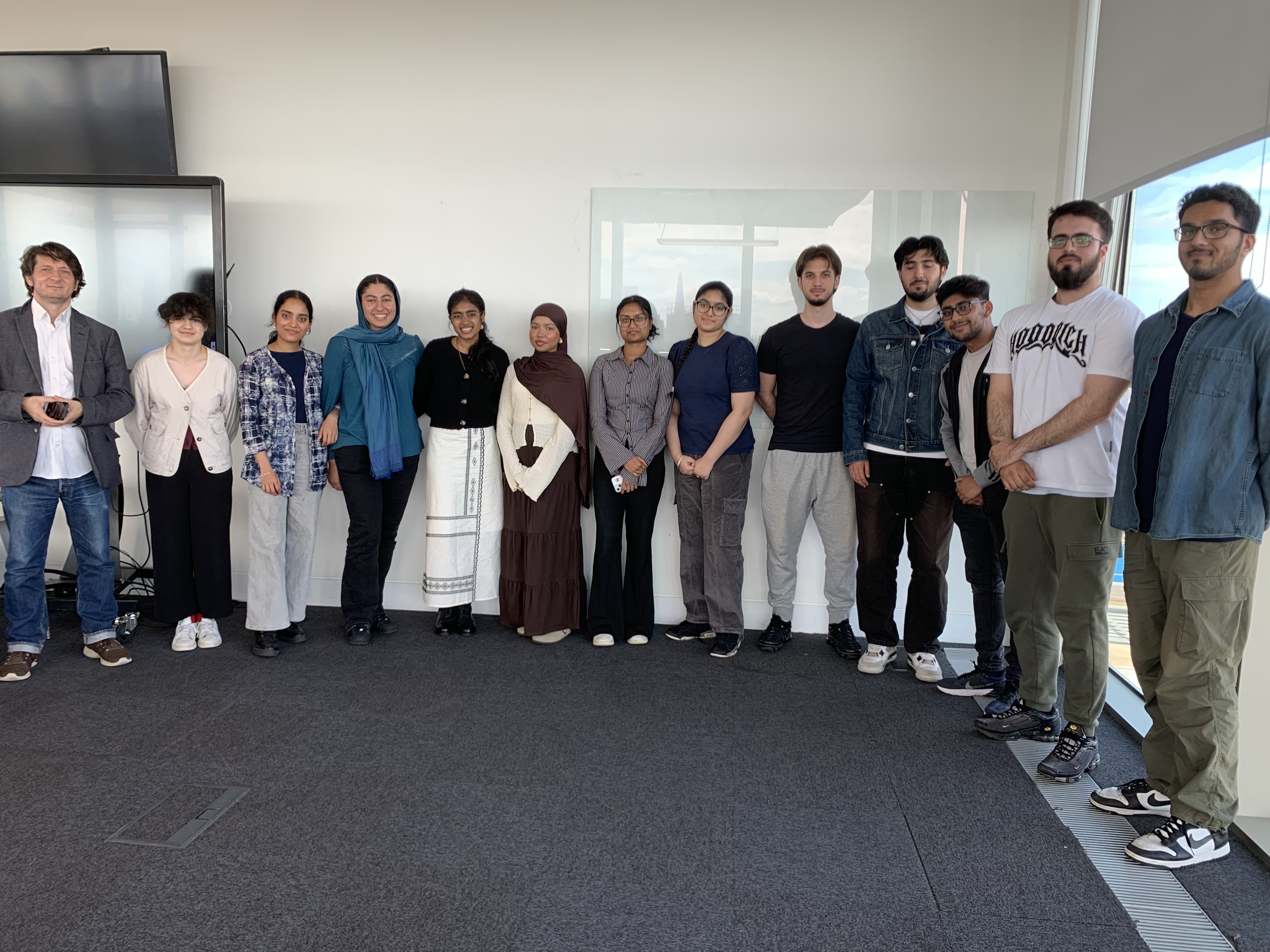The programme offers participants the opportunity to gain hands-on experience in Artificial Intelligence (AI) research, equipping them with the tools, skills, and confidence to excel in the field.
Its mission is to widen participation in AI research by addressing barriers faced by undergraduates in progressing to advanced degrees and careers. In doing so, it aims to foster a stronger, more diverse AI research community - one that brings a breadth of perspectives and innovative solutions to the challenges of the future.
Working closely with academics and PhD mentors from the School of Electronic Engineering and Computer Science (EECS), the students undertook projects at the cutting edge of AI research. Topics ranged from detecting large language model (LLM) hallucinations using growing sequences, predicting atrial fibrillation treatment outcomes with digital twins, exploring whether LLMs process music like humans, developing brain-inspired multimodal systems for vision and hearing, examining fairness in multimodal language models, and comparing pre-scaled neural and symbolic embedding methods.
Beyond their research, students built their academic and professional skills through sessions on research methods, career pathways, and personal development and participated in activities including a visit to Bletchley Park, networking with researchers at the Digital Environment Research Institute, and an evening exploring generative AI in music.
At the end of the programme, participants presented their findings at an academic poster session and they will also join a celebration event hosted by the Royal Academy of Engineering in September.
Reflecting on her experience on the programme at Queen Mary, Maryam Fetanat, a 4th year Design Engineering student from Imperial College London said, ‘I have gained confidence in myself and my future path, I now understand the behind-the-scenes process of doing research and publishing during a PhD, and what it’s like to work with cutting-edge AI models to improve a small but meaningful part of the field. I would definitely recommend the programme at Queen Mary to other students - I’ve learned so much and only wish I’d had the opportunity earlier in my studies. But it’s never too late to benefit from the experience.’
Rajpreet Athwal, a 2nd year Computer Science undergraduate student at Queen Mary reflects: ‘I would definitely recommend this programme to other students - it helps build foundational skills relevant to both research and industry careers. Before the programme, I was focused on entering industry after graduation, but now I’m much more open to pursuing a master’s in AI and machine learning. It also gave me a clearer understanding of what AI researchers actually do.’
Professor Steve Uhlig, Head of EECS, reflected on the programme’s value:
“If we want AI to benefit society, we must ensure that its development is guided by a diverse range of voices and experiences. This programme gives our students the chance to gain meaningful research experience, collaborate with leading experts, and imagine what the future of AI could be. I am very proud of how much they have achieved in such a short time, and so are they.”
Google DeepMind Research Ready is delivered in partnership with the Royal Academy of Engineering, Google DeepMind, and The Hg Foundation. The scheme is funding up to 120 paid AI research placements in summer 2025, hosted across 12 UK universities.
Find out more about the Research Ready Programme at Queen Mary.
